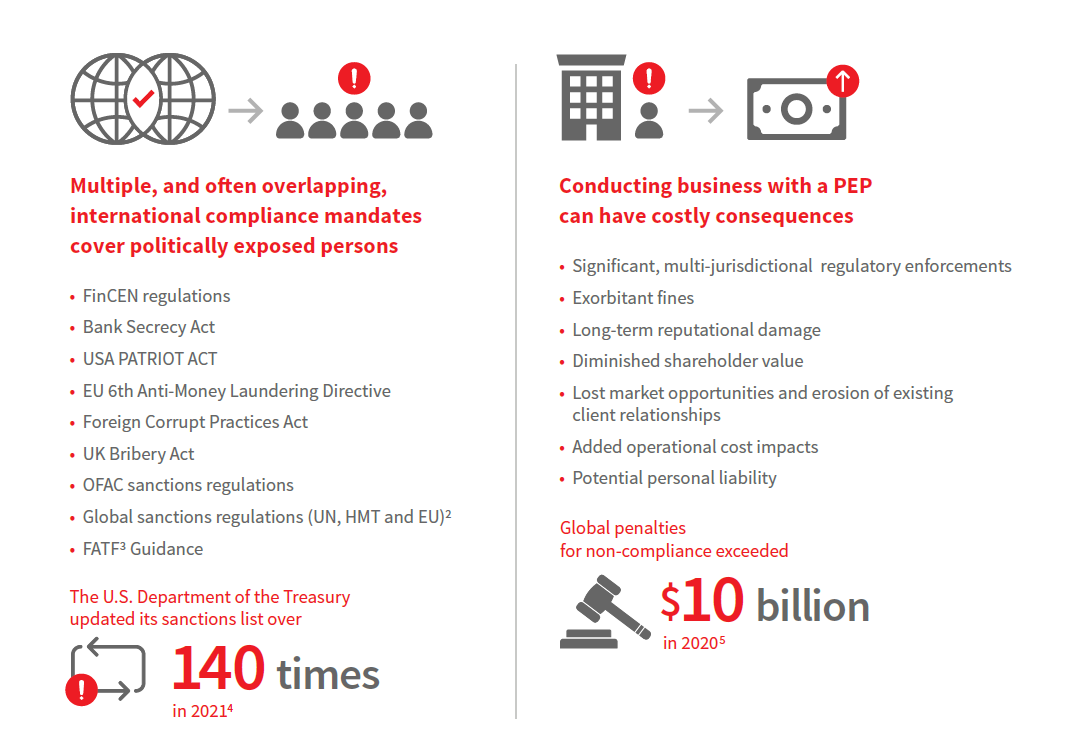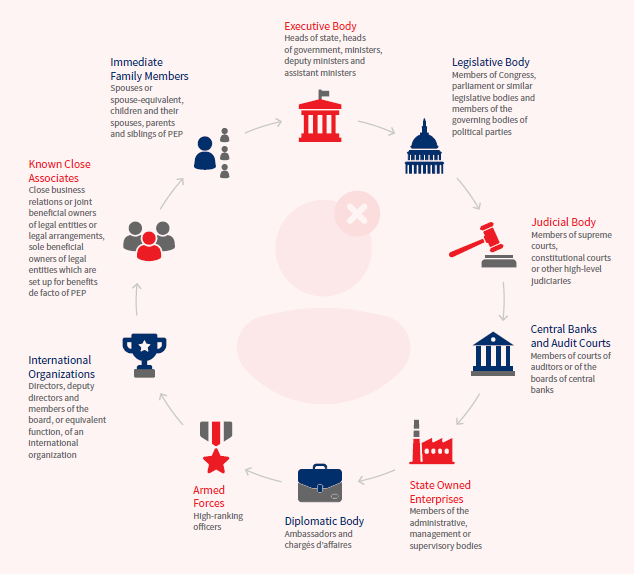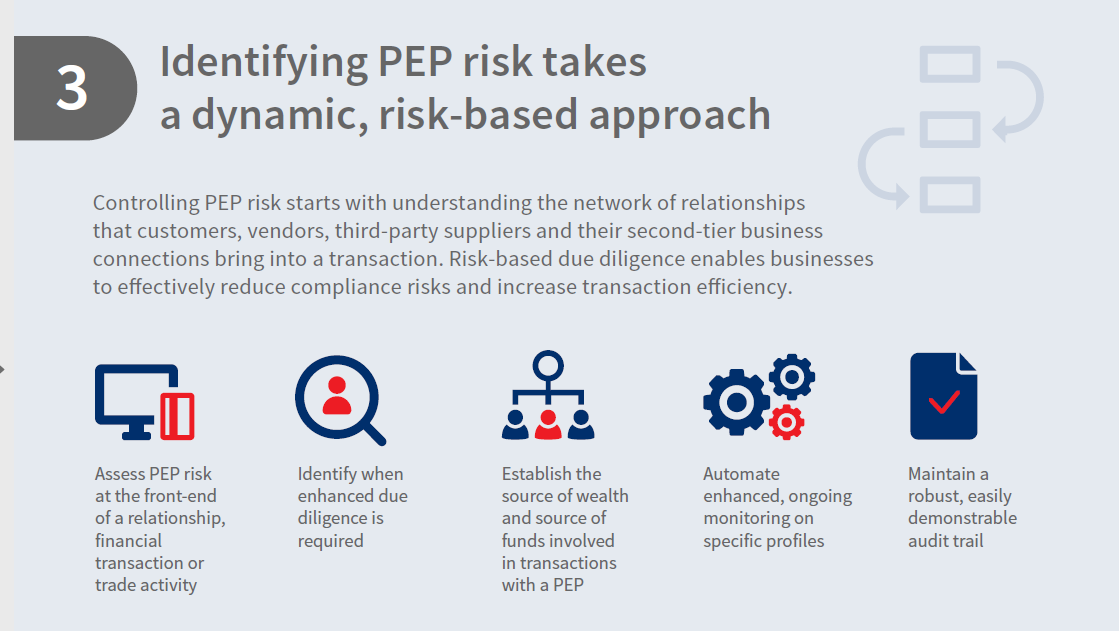The Basic Criteria for Deciding Who Is a Politically Exposed Person
The FATF defines a PEP as an individual who has been entrusted with a prominent public function. The position and influence held by a PEP could expose your business to heightened potential for AML, CTF sanctions and anti-bribery and corruption compliance risks.
Anyone in any of the following roles should be considered a potential PEP.
LNRS-What-Is-A-PEP-Infographic-2022-NXR15327-00-0122-EN-US
PEPs in Government Roles
- Legislative Bodies: An example is a Member of Parliament
- Executive Bodies: A PEP could range from the head of state down to the assistant ministers
- Diplomatic Roles: Ambassadors or chargé d’affaires would be considered PEPs
- Judiciary Bodies: Key people working within supreme courts, constitutional courts or high-level judicial bodies
- State-Owned Enterprises: A PEP would typically be anyone from a senior executive upwards. However, even former members of the board of directors no longer associated with an organization may retain influence and still be flagged as PEPs
PEPs in Organizations and Institutions
- Central Financial Institutions: Examples here would be the Court of Auditors and members on the boards of central banks
- Armed Forces: In this situation, a PEP rating would typically only apply to a high-ranking officer
- International Sports Committees: Members of these committees may be influenced to vote on the location of major sporting events/contracts for building venues, etc., so have recently been included by FATF under their definition of a PEP
Known ‘Close Associates’ who are Considered PEPs
- Anyone with a close business relationship or joint beneficial ownership of legal entities or legal arrangements with a PEP
- Anyone who has the sole beneficial ownership of a legal entity which is known to have been set up for the benefit de facto of the PEP
Immediate Family Members who are Considered PEPs
- Parents and children of PEPs
- Spouse or partner
- Siblings
- Uncles and aunts
- Even slightly indirect family members (such as in-laws) will be considered politically exposed persons
Note: Each country may have different local PEP regulations you must comply with when doing business in that region.
Test Yourself: Are these people PEPs?
- The mayor of Paris
- A former member of the board of directors for a state-owned enterprise
- A famous actress
- Head of the Olympic Committee
- The son-in-law of the mayor of Paris
- A town councillor
- The justice of the peace in a Magistrates Court
- The manager of a national football team
- The business partner of someone who has a sister on the Olympic Committee
How To Easily Identify These PEPs
It’s easy to see how the list of potential PEPs is expansive and continually in flux as people move into new roles, family members change, regulations and recommendations from the FATF are updated at the local level and the global landscape changes.



